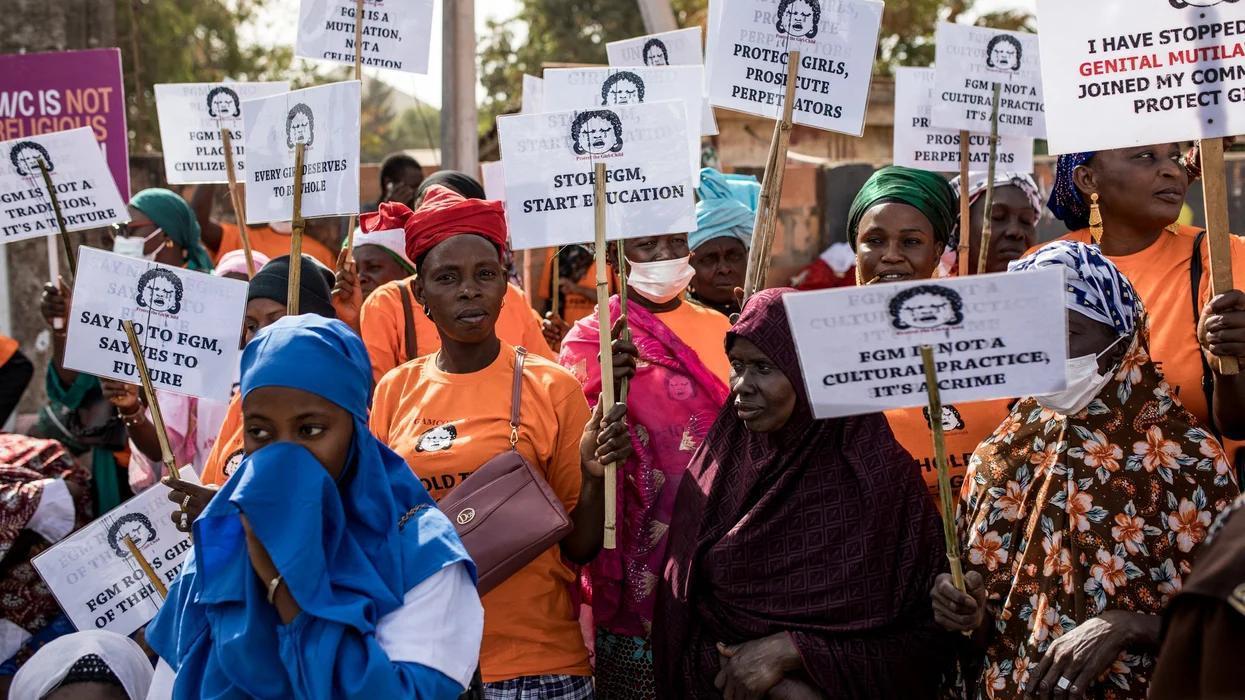Africa-Press – Gambia. Jaha Dukureh, anti-Female Genital Mutilation (FGM) advocate said she absolutely loves the Islamic religion and its principles but against FGM, a deeply rooted culture in The Gambia.
There has been controversy surrounding the traditional practice in The Gambia where some Islamic scholars said the practice is Islamic and should be legalized, while others disagreed saying it has nothing to do with Islam.
However, Ms. Dukureh, survivor of FGM from an Islamic background told Sip ‘n’ Chat with Fanta Ceesay in an interview: “I love Islam so much and whosoever knows my father knows that he has a mosque in his home. So, I love Islam more than anything but I am against FGM.”
She added that her parents made her undergo the traditional practice because they thought that the practice was good.
“When I knew its health complications for women, I established a foundation called Save Hands for Girls and began to fight it to save women and girl-child from health complications of FGM,” Ms. Dukureh also a politician said.
Several pro-FGM campaigners have accused anti-FGM advocates, particularly Jaha Dukureh of using FGM campaign to enrich themselves.
Reacting to this, the women’s rights activist said no person is paying her to combat the traditional practice but only campaigning against the deep rooted culture due to its harmfulness to women and girl-child.
“None of the international organizations from United Nations to World Bank no organization can come and say it has given me money to campaign against FGM,” she clarified.
Delving into the complications of FGM, Ms. Dukurehnarrated that when she was married in her early age, she could not have carnal knowledge with her husband for the fact that she was sealed.
“I had to be unsealed to have sex with my husband,” she said.
Moving forward, she says there is a need for anti-FGM advocates to dialogue with religious leaders like Imam Aboulie Fatty so that they understand the reason of activists fighting the deeply rooted culture.
“This should be done because the biggest problem of the religious leaders is that they claimed that FGM is not practice in The Gambia rather female circumcision is the one performed.”
“In my last conversation with Imam Fatty, I asked him what that meant and ‘he said it did not involve any removal of sexual organ.’ But I personally, have undergone FGM and my sexual organ was removed, and most of the girls I asked said either their entire thing cut off or more than that,” the FGM survivors said.
According to UNICEF 2021 report, Seventy-six percent of Gambian females aged between 15 and 49 have undergone FGM, a traditional practice which several claimed to have serious health problems, including infections, bleeding, infertility and complications in childbirth, and impaired sexual pleasure.
The FGM survivor argues that most of the people advocating the legalization of FGM in the society are men who have no clue on the health complication of the practice.
“I remembered during the day the FGM Bill was presented at the Parliament, I had conversation with a Member of Parliament and he told me that FGM was not practice in the country. I told him there was and if you wanted I could trim off and saw you, because I was annoyed with him for denying us as FGM survivors of the thing we telling,” she explained.
Meanwhile, the FGM survivor says there is a need for the civil society organizations and religious leaders to dialogue about issue at hand.
“This is about discussing Gambian women and girl-child wellbeing,” she emphasized.
For More News And Analysis About Gambia Follow Africa-Press






